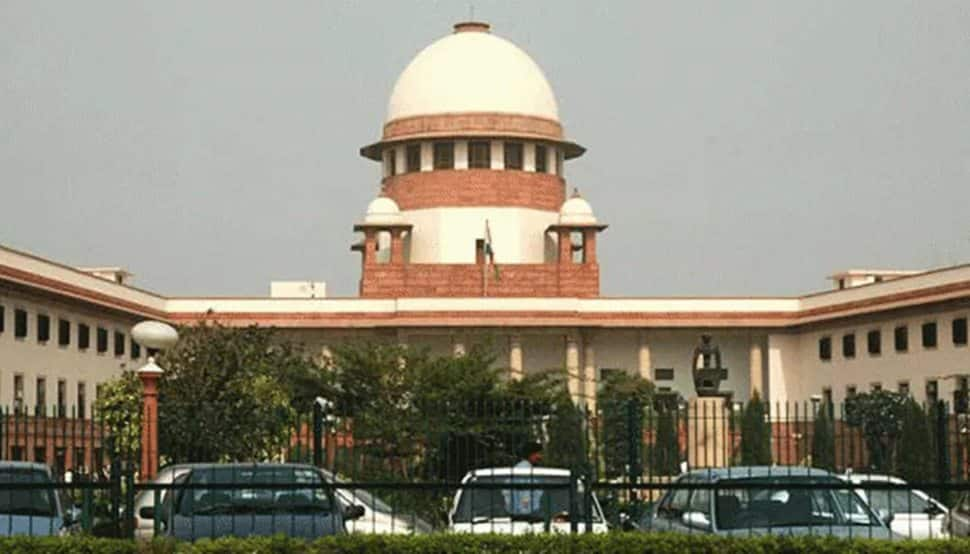 |
|
The Supreme Court of India's recent landmark ruling against religious conversions solely for the purpose of obtaining reservation benefits has sent ripples through the nation, sparking intense debate on the intersection of religion, social justice, and constitutional interpretation. The case, stemming from a Madras High Court judgment, involved a woman who converted to Christianity, only to later claim Hindu identity to secure Scheduled Caste (SC) employment benefits. The court's decisive rejection of this claim, labeling it a 'fraud on the Constitution', underscores the complex legal and ethical considerations surrounding the use of religious identity to access government-provided affirmative action programs. The judgment highlights a critical tension: the desire to uphold the constitutional mandate of social justice through reservation policies designed to uplift marginalized communities, while simultaneously preventing the exploitation of these policies for personal gain. The court’s emphasis on genuine faith as a prerequisite for religious conversion serves as a crucial clarification of the spirit of reservation policies, asserting that their intent is not to reward strategic manipulation of religious identity but to truly address historical injustices and systemic inequalities.
Justice Mahadevan's 21-page verdict provides a detailed analysis of the appellant's actions, emphasizing the distinction between sincere religious conversion motivated by genuine belief and a calculated conversion solely to benefit from reservation policies. The court meticulously examined the evidence, noting the appellant's active participation in Christian practices before attempting to reclaim her Hindu identity for employment purposes. This dual claim, deemed 'untenable' by the court, exemplifies the very issue at the heart of the ruling: the integrity of the reservation system and its potential for abuse. The decision reflects the court's commitment to upholding the core principles of the reservation policy – namely, to redress historical and ongoing social injustices faced by marginalized communities. By rejecting attempts to manipulate the system for personal gain, the court reinforces the policy's fundamental aim: to empower those genuinely in need of support, rather than those who seek to exploit it for opportunistic purposes. The ruling sends a strong message that the benefits of reservation are intended for those who genuinely belong to the designated communities, not for those who strategically adopt and discard religious identities to gain access.
The implications of this Supreme Court ruling extend beyond the individual case. It sets a significant precedent for future cases involving similar claims of religious conversion for reservation benefits, establishing a clear legal standard against such actions. The court's emphasis on the 'social ethos' of reservation policies highlights the importance of ensuring that these programs remain true to their intended purpose. The ruling raises questions about the effectiveness of current mechanisms for verifying the authenticity of religious conversions and the need for more robust processes to prevent fraudulent claims. It also highlights the ongoing complexities surrounding India's caste system and its interaction with religious identity, particularly given the historical interweaving of caste and religious practice. The debate now shifts to how to effectively implement this ruling and prevent future abuses of the reservation system while still ensuring that those genuinely entitled to its benefits are able to access them without undue bureaucratic hurdles. The challenge lies in balancing the need to protect the integrity of affirmative action policies with the need to ensure that the system remains accessible to those who truly require its assistance.
Furthermore, the ruling compels a closer examination of the social and political ramifications of caste-based reservation policies in India. The decision underscores the ongoing tension between the desire for social justice and the potential for manipulation within such systems. It invites broader discussions on the effectiveness and fairness of current reservation policies and whether alternative mechanisms might be considered to better address the complex societal challenges they are designed to alleviate. The debate surrounding this ruling highlights the persistent complexities of social engineering through legislation and the constant need to adapt and refine such policies to ensure both their effectiveness and integrity. The ongoing dialogue surrounding this verdict will likely influence future policy decisions concerning reservation and potentially lead to reforms aimed at enhancing the transparency and efficiency of the process, safeguarding against abuse while still providing vital support to deserving individuals and communities.
In conclusion, the Supreme Court's verdict against religious conversions solely for reservation benefits is a landmark decision with far-reaching implications for Indian society and its legal framework. The ruling underscores the importance of upholding the integrity of affirmative action policies, emphasizing the need for genuine faith and sincerity in religious conversion, rather than opportunistic manipulation for personal gain. While the decision offers clarity on the legal aspects of such cases, it also necessitates a broader societal conversation about the ongoing challenges of addressing caste-based inequalities and ensuring the equitable implementation of reservation policies. The years to come will undoubtedly witness further discussions and developments in this crucial area, shaped by the Supreme Court's decisive stance and the ongoing societal debate surrounding its implications.
Source: 'A Fraud on Constitution': Supreme Court Rules Against Religious Conversion For Quota Benefits
